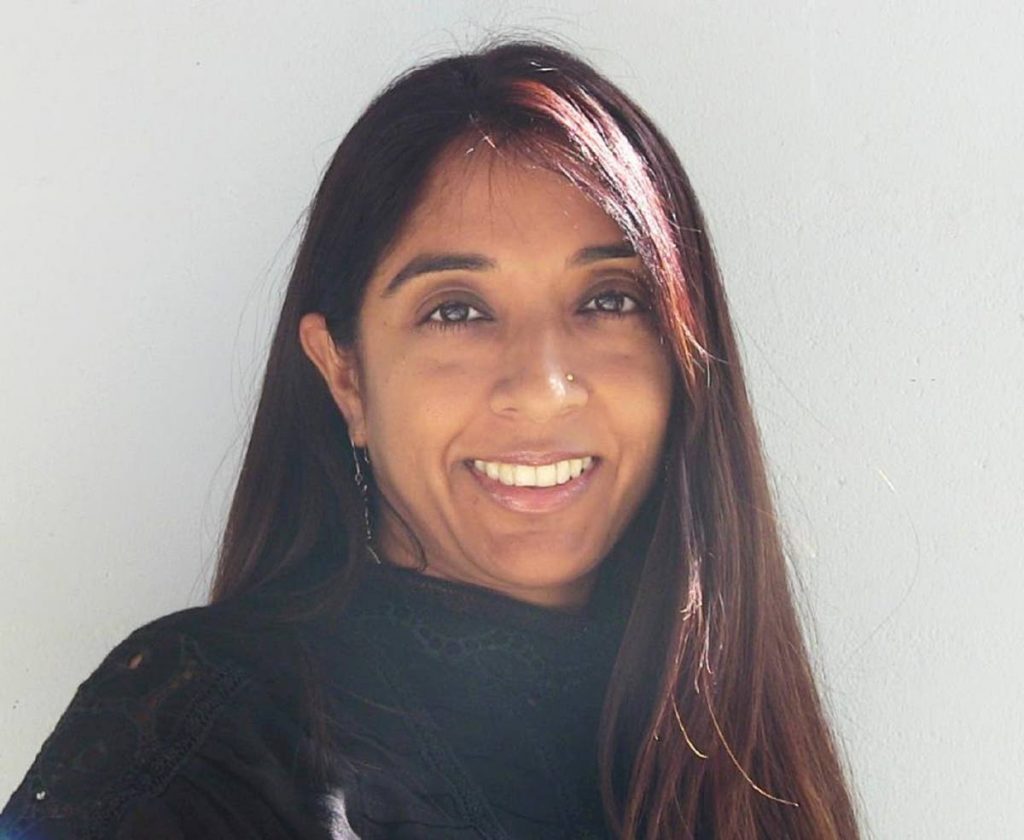Muslim women of steel

Diary of a mothering worker
DR GABRIELLE JAMELA HOSEIN
THE STORY goes like this. On November 22, 1948, at the mosque on Prince Albert Street in San Fernando, a 19-year-old young woman, Sister Zarina Yusuf Mohammed, suggested to her aunt, Ameena Rahamut, that they form a women’s association. At the time, electricity bills needed to be paid for the masjid, and the women were asked to respond with a financial solution.
From that moment until now, 70 years later, the San Fernando Muslim Women’s Association (SMWA) has been active on just about every front imaginable; from outings to fund-raisers, charities, bazaars, iftar dinners, religious education, primary schooling, fashion shows and improvements to the masjid itself. And, Sister Zarina is still an association member.
I was humbled to be in the room with these honorable and humble women who have nurtured a women’s group for three generations, created a social space through which women could exercise leadership and form strong networks, and had an impact both within and outside the Muslim community through their support to students and children, care for the ill and poor, and much more.
I have a special love for Caribbean Muslim women’s organisations. You meet these women, who run battered women’s shelters or quietly support feminist struggles or work in children’s rights, and come face to face with some of the most hands-on community organisers in the country. Sometimes, I’m intimidated. These women are proper in a way I’m not. They seem indefatigable, raising whole families of children and running their community like a dynasty, when I’m exhausted just trying to get through the day. They’re effective in a way I dream to be, making an impact, year after year for decades, that crosses class differences.
I was at the SMWA’s 70th-anniversary celebrations, wondering why they invited me as a speaker, for surely my public activism hasn’t put me in the movement for respectability as much as it has for respect for women’s rights. The two are not the same, and may at times be at odds.
I found myself thinking about our probable political differences in relation to reproductive rights and justice, sexual and gender diversity, and gender roles and responsibilities. More importantly, I found myself thinking that despite these likely differences in our feminism, there was far more than I ever realised I could learn from these women.
Muslim women’s organisations in Trinidad have a long and resilient history. They should. Aisha, third wife of the Prophet Muhammad (peace be upon him), born at the turn of the seventh century, delivered public speeches, became directly involved in war and even battles, and was considered a stateswoman, scholar, mufti, and judge.
In Trinidad, from the 1930s, Muslim women were delivering lectures to mixed audiences, becoming members of elected mosque boards and councils, holding meetings to develop women’s groups, and participating in debates regarding women’s equality.
From the 1950s, the Young Muslim Women’s Association, the San Juan Muslim Ladies Organization, and the Islamic Ladies Social and Cultural Association also began to be established. Muslim women in both the TML and Nur-E-Islam mosques also have a history of pushback against partitions narrowing their space for prayer in the masjid, and ASJA women have challenged their exclusion from voting in organisational elections when they perceived their association or jamaat being a “boys’ club.”
An “understated stridency” (to use Patricia Mohammed’s words) is at work here, despite stereotypes of Muslim Indian women as more passive, and even more oppressed. As I was reminded on Sunday, these women are formidable and fierce, they are generous and giving, and deeply committed to correct ways of living that create greater common good.
As I listened to their awards for earliest membership, longest service, and contribution after contribution, including by several women who are national-award winners, I found myself dreaming that if we could build and sustain a Caribbean feminist movement for 70 years, as they have for the SMWA, patriarchy and its harms might just be run out of town.
These are women from whom we can learn about the last half-century of Muslim Indian women’s associational history. There’s capacity, connection, wisdom and will of steel to observe up close. Brother Kalamazad Mohammed is also an encouragingly progressive imam.
It was essential to motivate women… into empowering themselves, says Sister Zarina in an interview, “We were born to help the less fortunate. We were certainly not created to only dwell within the walls of our homes…”
Sign me up, I thought. Alhamdulillah. I want to be a part.
Entry 308
motheringworker@gmail.com


Comments
"Muslim women of steel"